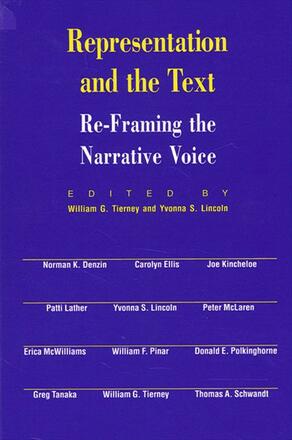
Representation and the Text
Re-Framing the Narrative Voice
Alternative formats available from:
Focuses on authorial representations of contested reality in qualitative research.
Description
Focuses on authorial representations of contested reality in qualitative research. This book focuses on representations of contested realities in qualitative research. The authors examine two separate, but interrelated, issues: criticisms of how researchers use "voice," and suggestions about how to develop experimental voices that expand the range of narrative strategies.
Changing relationships between researchers and respondents dictate alterations in textual representations--from the "view from nowhere" to the view from a particular location, and from the omniscient voice to the polyvocality of communities of individuals. Examples of new representations and textual experiments provide models for how some authors have struggled with voice in their texts, and in so doing, broaden who they and we mean by "us. "
William G. Tierney is Professor and Director of the Center for Higher Education Policy Analysis at the University of Southern California. Yvonna S. Lincoln is Professor and Head of the Educational Administration Department at Texas A&M University.
Reviews
"The mixture of theory, voice, ideology, and passion makes this a most enjoyable and fulfilling read. This book will be at the forefront of thought and debate about the use of narrative voice, public and private selves, and the obvious place these have in author's research endeavors. " -- Ken Kempner, Educational Leadership, University of Oregon